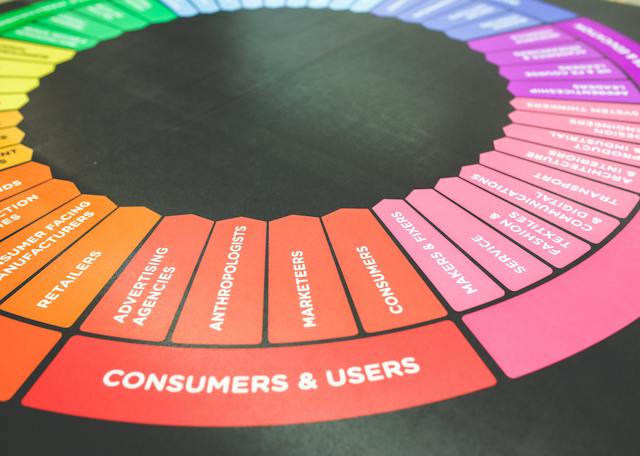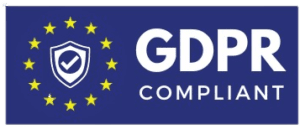Personalized marketing campaigns are highly focused and individualized marketing tactics aimed to customize content, offers, and messaging to individual customers’ or segmented groups within a larger audience’s personal interests, behaviors, and needs.
These campaigns use data and insights gleaned from customer interactions, such as previous purchases, browsing history, demographics, and engagement patterns, to develop highly relevant and engaging marketing materials.
The major purpose of personalized marketing is to create a more meaningful connection with customers, resulting in increased engagement, conversion rates, and brand loyalty.
Role of Personalized Marketing Campaigns:
According to the stats published by Forbes, 74% of customers feel frustrated when website content is not personalized.
The relevance of personalized marketing initiatives in today’s corporate landscape is consistently growing with the emergence of new age marketing tools and techniques.
Personalized marketing campaigns helps to increase client engagement by producing content that speaks to them on a personal level.
Customers are more likely to pay attention and respond positively when they get communications that are relevant to their interests and previous interactions. This creates a stronger emotional connection with the brand and enhances conversion rates.
Secondly, personalized marketing strategies help to increase conversion rates and sales. Businesses may drastically lower purchase barriers by giving tailored offers, product or service recommendations.
For example, an e-commerce site that recommends products based on a customer’s previous shopping history might enhance conversion rates and revenue.
Finally, personalized marketing provides data-driven insights to firms. Companies may better understand their audience, change their marketing strategy, and make educated business decisions by analyzing customer data.
Continuous learning and adaptation based on client preferences and behaviors are essential for remaining competitive and relevant in a continually changing market.
In essence, personalized marketing strategies are critical for building client relationships, increasing revenue, and propelling business growth. Second, personalized marketing strategies help to increase conversion rates and sales.
Businesses may drastically lower purchase barriers by giving tailored offers and product recommendations. For example, an e-commerce site that recommends products based on a customer’s previous shopping history might enhance conversion rates and revenue.
Importance of personalized marketing campaigns:
For several compelling reasons, personalized B2B marketing data are critical in today’s competitive company scene.
Personalization, first and foremost, increases customer engagement. Customers are more likely to pay attention and respond positively when marketing communications are tailored to their unique interests, requirements, and behaviors.
Personalized content connects on a deeper level with recipients, making them feel valued and understood. This emotional connection boosts brand loyalty and the chance of repeat business.
Personalized marketing campaigns boosts conversion rates dramatically. Customers are more likely to make a purchase when they receive relevant offers and recommendations based on their previous interactions and preferences.
Personalization also improves the customer experience. Customers enjoy it when companies make their life easier by offering customized solutions.
Personalized information not only helps clients find what they’re looking for faster, but it also reduces unnecessary distractions. As a result, consumer happiness rises, resulting in favorable word-of-mouth referrals and an improved brand reputation.
Finally, personalized marketing enables more exact targeting and resource allocation. You can direct your marketing efforts and finances more efficiently by segmenting your audience based on demographics, behaviors, or preferences.
Rather than taking a one-size-fits-all approach, you may concentrate your efforts on the segments most likely to create money, maximizing your return on investment.
How to create personalized marketing campaigns:
Personalizing your marketing outreach is a crucial strategy in today’s competitive business landscape. It involves tailoring your marketing campaigns to individual customers or specific audience segments, making your messages more relevant and engaging. Here’s a brief overview of how to create personalized marketing campaigns:
1) Audience Segmentation:
Start by dividing your customer base into smaller, meaningful segments based on demographics, behavior, interests, or purchase history. This segmentation helps you understand the unique characteristics and needs of different groups.
2) Collect Data:
Gather data about your customers through various touchpoints such as website visits, social media interactions, email sign-ups, and purchase history. The more information you have, the better you can personalize your campaigns.
3) Customer Profiling:
Create detailed customer profiles or buyer personas for each segment. These profiles should include information like age, gender, preferences, pain points, and buying habits. This allows you to create marketing content that resonates with each group.
4) Tailored Content:
Develop content that speaks directly to each audience segment. This could involve crafting personalized email messages, website landing pages, or social media ads that address the specific needs and interests of the target group.
5) Personalized Recommendations:
Use customer data to make product or content recommendations. Implement algorithms that suggest products similar to what a customer has viewed or purchased before, increasing the chances of a sale.
6) Dynamic Content:
Utilize dynamic content within emails or on your website. This technology allows you to automatically display different content to different users based on their preferences or behaviors.
7) Timing and Frequency:
Pay attention to the timing and frequency of your outreach. Send messages when your audience is most likely to be receptive, and avoid bombarding them with excessive communications.
8) A/B Testing:
Continuously refine your personalized campaigns by A/B testing different elements like subject lines, images, and calls to action. Analyze the results to optimize your messaging.
9) Feedback Loop:
Encourage customer feedback and listen to their responses. Use this information to fine-tune your personalization strategies and improve the customer experience.
10) Automation:
Implement marketing automation tools to streamline the personalization process. These tools can help you send automated, personalized messages at scale.
11) Compliance:
Ensure that your personalized marketing campaigns comply with relevant data protection laws, such as GDPR or CCPA. Obtain explicit consent for data usage and provide options for customers to opt out.
12) Analytics and Measurement:
Regularly track and measure the performance of your personalized campaigns. Analyze metrics like click-through rates, conversion rates, and ROI to assess their effectiveness.
How Exuberant can help in your Personalized Marketing?
Our role is to assist businesses in discovering and compiling a list of possible clients, complete with contact information.
1) Data Research:
We begin by conducting extensive research to learn about your target audience. This entails determining potential customers’ demographics, interests, and behaviors. We also analyze your existing customer data and utilize it to create a profile of their ideal prospect.
2) Data Validation:
Ensure the data you collect is accurate and authentic. Use data validation tools and strategies to ensure that the contact information is up to date and correct. This step is critical for maintaining email deliverability and avoiding resource waste on incorrect or obsolete contacts.
3) List Building:
We create a segmented lists of potential clients depending on the criteria established during the research process. Industry, job title, geographic area, company size, and other criteria may be considered in segmentation. We then organize the lists so that businesses can easily target certain groups with customized email campaigns or messaging.
4) Contact Details:
We provide complete and up-to-date contact information each prospect. Names, email addresses, phone numbers, and any other relevant information that may be beneficial for outreach are often included.
5) Data Enrichment:
We also improve the basic contact information with additional information that will assist you in personalizing their outreach. Details on a prospect’s role, company history, recent accomplishments, or any special obstacles they may be facing could be included.
6) Compliance:
We always check that our data gathering and storage practices are in accordance with applicable data protection and privacy requirements. To ensure compliance, we provide guidelines on gaining consent for email outreach as well as provide opt-out procedures.
7) Delivery:
We deliver the lists in a format that they can easily integrate into their email marketing platforms or CRM systems. Excel spreadsheets, CSV files, or direct integration with their product can be included.
8) Reporting:
We also provide reporting and analytics services to assist you in tracking the success of their outreach activities. To evaluate the success of email marketing, you can track key indicators such as open rates, click-through rates, and conversion rates.
The Future of Personalize Marketing Campaigns:
Personalized marketing strategies will become even more dynamic and complex in the future, thanks to technological improvements, changing consumer expectations, and an emphasis on data privacy. Here’s a look at what the future of personalized marketing holds:
AI and Machine Learning (ML) will continue to play important roles in personalized marketing. Marketers will be able to analyze massive datasets in real time, uncover intricate patterns in customer behaviors, and deliver hyper-personalized content and product recommendations thanks to these technologies.
AI-powered chatbots and virtual assistants will interact with clients one-on-one, providing personalized help and product recommendations.
Predictive analytics will improve, allowing companies to predict client demands and preferences before they express them.
Marketing campaigns will be extremely proactive with predictive personalization, giving personalized information and recommendations at precisely the appropriate time. This proactive strategy will increase conversion rates and improve the entire customer experience.
As concerns about data privacy and ethics develop, the future of personalized marketing will place a larger emphasis on ethical and transparent data practices.
Companies will need to be more transparent about how customer data is acquired and utilized, giving customers more control over their data while adhering to stringent data protection requirements. Building and maintaining consumer connections will rely heavily on trust and openness.
Finally, cutting-edge technologies, predictive skills, and a commitment to ethical data practices will determine the future of personalized marketing efforts.
Businesses that can harness the potential of AI, machine learning, and predictive analytics while respecting consumer privacy and consent will be well-positioned to create personalized experiences that truly resonate with individuals, resulting in higher engagement and loyalty in an increasingly digital world.
To summarize the discussion, we can empower businesses to create personalized marketing campaigns that resonate with their audience, drive engagement, and ultimately lead to improved customer relationships and business growth. Our expertise in data collection, segmentation, and campaign execution will be invaluable in helping unlock the full potential of personalized marketing campaigns.






